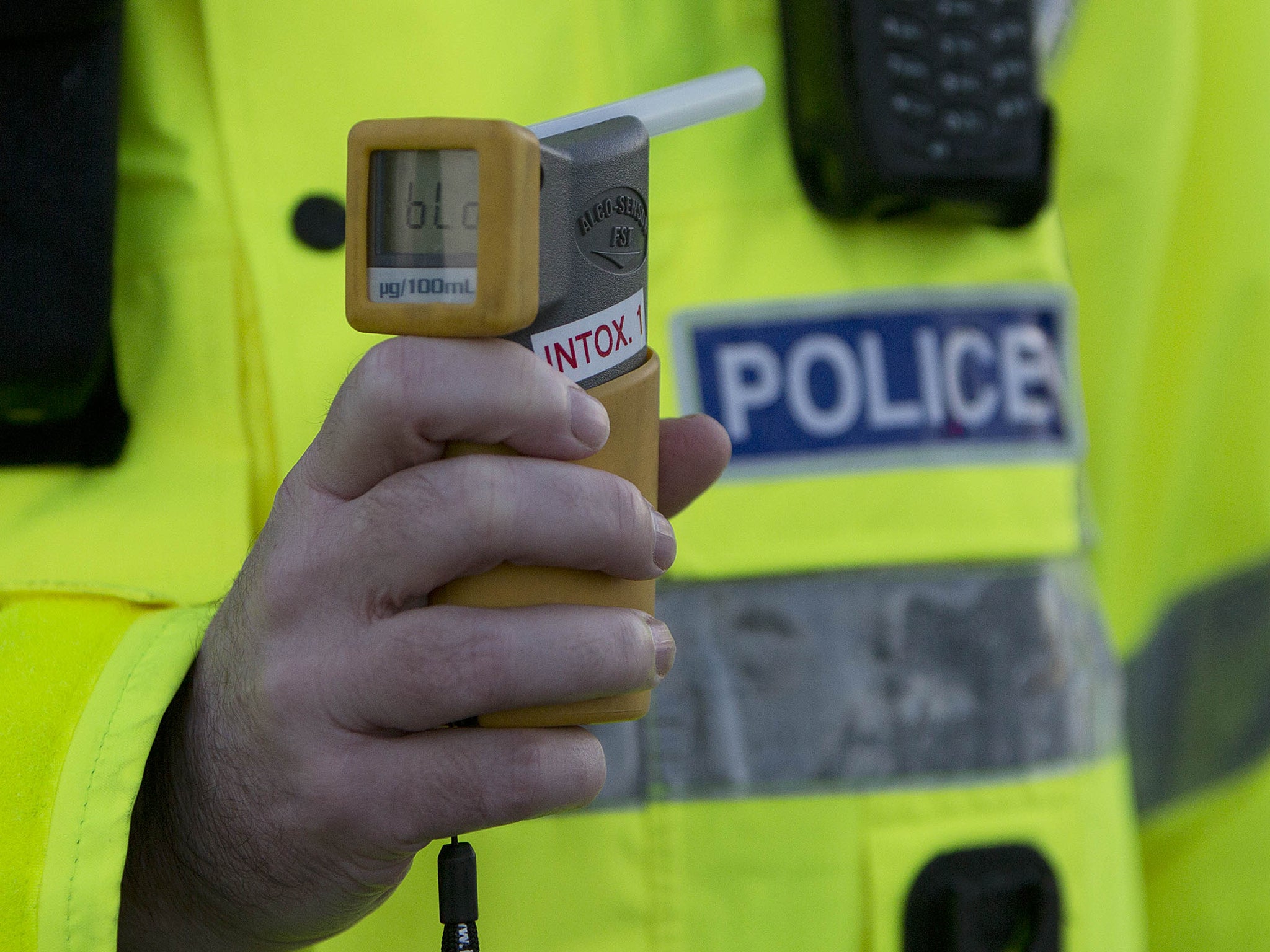Call for drink-drive limit to be cut by third ‘to save 300 lives a year’
A lower limit would also save £300 million annually by reducing the number of 999 responses and hospital admissions

The legal drink-drive limit should be lowered in England and Wales to cut alcohol-related accidents, councils and fire authorities have urged.
The Local Government Association (LGA) and all fire and rescue authorities in England and Wales are calling for the current limit to be lowered from 80mg to 50mg of alcohol per 100ml of blood.
The Scottish Government reduced its legal limit for drivers to 50mg in December 2014 and Northern Ireland will also soon drop its limit to the same level, and even lower for professional and learner drivers.
The LGA said it was estimated that lowering the limit in England and Wales could save up to 170 lives in the first year, rising to more than 300 lives in the sixth year.
A lower limit would also save £300 million annually by reducing the number of 999 responses and hospital admissions.
It cited new provisional government figures showing that reported "serious" drink-drive accidents between 2014 and 2015 in Great Britain had risen from 880 to 980, an increase of 11 per cent, while total reported drink-drive accidents had increased by 2 per cent from 5,620 to 5,740.

The same figures showed the number of people seriously injured in reported drink-drive accidents between 2014 and 2015 had risen from 1,070 to 1,170, an increase of 9 per cent, while the total number of drink-drive casualties had increased by 3 per cent from 8,210 to 8,480.
The organisations said England and Wales had one of the highest drink-drive limits in the world and the highest in Europe, with the exception of Malta, which has also announced plans to lower its limit to 50mg.
Between 2010 and 2015 the number of people killed in reported drink-drive accidents has remained between 220 and 240.

Simon Blackburn, chairman of the LGA's Safer and Stronger Communities Board, said: "England and Wales will soon have the highest drink-drive limit in Europe, which is not sending the right message to motorists and safety campaigners.
"Latest figures show that alcohol has contributed to a rise in both the number of road accidents and those injured in the UK.
"The Government should be leading by example by toughening up drink-drive laws in line with other European countries which will make roads safer and save lives. In Scotland alone, adopting a lower alcohol limit has led to a significant fall in fatal road accidents.
"A lower alcohol limit would help to deter motorists from drinking at all before getting behind the wheel and encourage them to have 'none for the road'."
Join our commenting forum
Join thought-provoking conversations, follow other Independent readers and see their replies
Comments
Bookmark popover
Removed from bookmarks